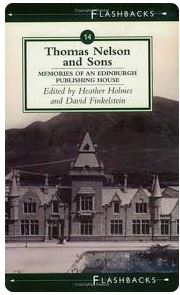And so, today is the last day when I’m officially unfit to work. I go back to the library on Monday, but not without some anxiety.
Mind the Gap!
There is a discrepancy. After my eye surgery, I’m now ‘fit’ to return to work, but all clinical advice says that full recovery takes a number of months, if not a year. The hospital doctor tells me I can’t even get new glasses (which I need) until after the summer, by which time the fixed eye should have settled enough to merit a new prescription. (I’ll also have retired from librarianship and will be simply a part-time researcher.) At present, vision through that eye is still blurred, although the two eyes together can manage okay. I’ve attempted to contrast what my two eyes see at the moment, by doctoring an old stereoscope image, seen above. The black bubble diminishes day by day – it might disappear by the end of next week.

I spent some time googling ‘return to work after macular hole surgery’, because I’m sure I’ll be asked if I need anything to support my return to work – but for myself, the only advice I’ve had is, ‘yes, you can return to work’. If you live in Blackburn, UK, you’re told not to work for three months! Three whole months? This is the only health authority suggesting such a long time off work. Otherwise, the advice sheets I’ve seen simply advise not to fly with a black gas bubble (not a problem); not to drive, ditto; not to lift anything heavy, and to take a rest if your good eye starts to ache. That’s it. It seems reasonable.
Emails? Sure, but the print on CD covers is TINY!
Just like anyone else returning to work, there will be a lot of emails to catch up on. I’m sure there will also be a backlog of cataloguing. It has to be done, small print or not. I do have a magnifying glass.
If you’re AT work, colleagues are entitled to assume you can do the work, all of the work, and no pick-and-choosing. Fit to work means, well, fit to work. The patrons you interact with similarly don’t know you’re still a little fragile, and will expect you to function normally. And if a patron is waiting for a book, they should have it catalogued – my fitness has absolutely nothing to do with it – that’s irrelevant. Similarly, a query should be dealt with timeously. I set up ‘out of office’ email messages before my operation, but one query directly to me, had been by telephone, and I wasn’t able to make contact with the enquirer before I took sick leave, despite a dozen attempts to return the call. I fear they’ll be annoyed by my silence. I’ll be as apologetic as I can!
And how do I confess if I can’t lift something, or indeed see something clearly? If I’m ‘fit to work’ as normal, I should be able to. As for taking a rest? Why should I be afforded that privilege? That would seem unfair on everyone else.
On the positive side, of course, it means I can get back to my research on Wednesdays and Thursday mornings. Heaven! And hopefully I’ll soon find out if any more needs to be done to my book draft before it can go forward into the copy-editing process.
Wish me luck.












